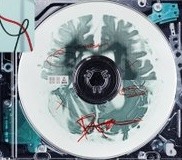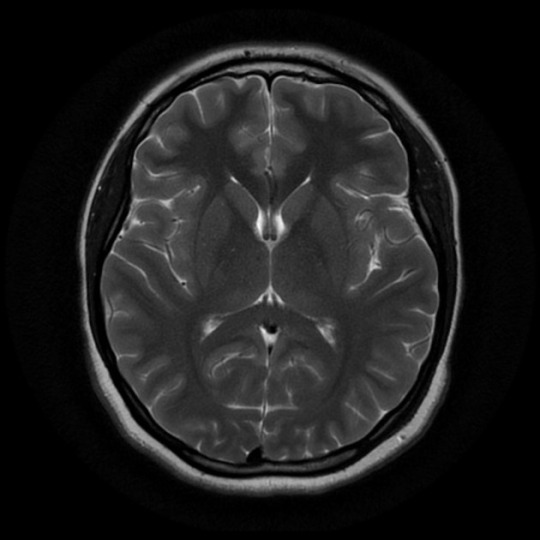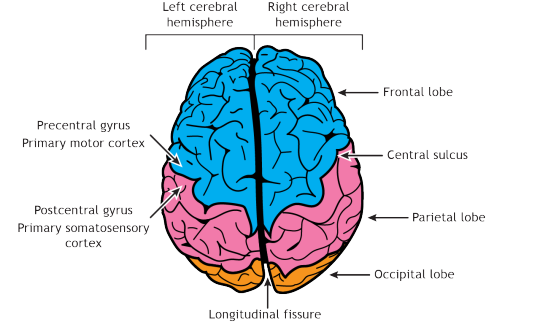#effective study habits
Explore tagged Tumblr posts
Text
🎓 Study SMARTER, Not HARDER: 5 Tips to Transform Your Learning! 📚
Discover research-backed strategies from Andrew Huberman to boost your study routine:
Effective study scheduling
Self-testing for retention
Distraction-free focus
Teach others for mastery
🎥 Watch Now:
youtube
Level up your study game today! 🚀
#andrew huberman#mental health#neuroscience#youtube#study motivation#positivity#study blog#study habits#study hacks#effective study habits#effective study techniques
0 notes
Text
1 note
·
View note
Text
Effective study strategies are crucial for mastering the intricacies of practical nursing. One essential component of nursing skills training is adopting a study plan that maximizes learning efficiency. Creating a structured schedule, utilizing various resources, and engaging in active learning techniques can significantly enhance your understanding and retention of nursing concepts.
0 notes
Text
#overcome exam anxiety#reduce exam stress#exam preparation tips#anxiety management for students#exam stress relief#study techniques#effective study habits#relaxation techniques for exams#icse schools in north bangalore#list of top international schools in yelahanka
1 note
·
View note
Link
Looking to boost your child's academic journey with effective study habits? 💡 Our latest article at Let's Learn Anything provides a comprehensive guide to fostering an environment ripe for learning success. Explore personalized strategies tailored to your child's unique style, tips on time management, and how positive encouragement can make all the difference. Dive into this actionable insight and start laying the groundwork for a lifetime love of learning today!
0 notes
Text
Mastering the Art of Learning: Effective Study Habits for Academic and Lifelong Success

In the pursuit of academic excellence and lifelong learning, cultivating effective study habits becomes a cornerstone for success. This summary navigates the strategies and practices crucial for students aiming to maximize their learning potential, not just within the confines of school but extending to broader life endeavors.
Time Management Mastery:
Learn to prioritize tasks and allocate dedicated time to each subject or project.
Utilize tools like planners and calendars to create a structured study schedule.
Active Engagement in Learning:
Move beyond passive reading to active engagement by taking notes, asking questions, and participating in discussions.
Implement techniques like the Feynman Technique to enhance understanding through teaching concepts to others.
Effective Note-Taking Techniques:
Develop a personalized note-taking system that suits your learning style.
Experiment with methods like mind mapping, Cornell method, or annotation for more impactful notes.
Create a Distraction-Free Environment:
Designate a quiet and organized study space to minimize distractions.
Utilize tools or apps to temporarily block access to social media and other distractions during study sessions.
Utilize Technology Wisely:
Leverage technology for research, organization, and collaborative learning.
Explore educational apps and online resources that complement your learning objectives.
Set Realistic Goals:
Break down larger tasks into smaller, manageable goals.
Celebrate achievements and use setbacks as opportunities for improvement.
Varied Learning Techniques:
Embrace diverse learning methods, including visual aids, auditory resources, and hands-on activities.
Tailor your approach to the subject matter and experiment with different study techniques.
Healthy Lifestyle Choices:
Prioritize sleep, exercise, and nutrition for optimal cognitive function.
Maintain a healthy balance between academic commitments and personal well-being.
Regular Review and Practice:
Implement a consistent review schedule to reinforce learned concepts.
Engage in regular practice through problem-solving, quizzes, and self-assessment.
Effective Communication with Instructors:
Foster open communication with teachers or professors to seek clarification and guidance.
Attend office hours and participate actively in class discussions.
Mindfulness and Stress Management:
Integrate mindfulness practices, such as meditation or deep breathing, to manage stress.
Recognize signs of burnout and take breaks when needed to maintain mental well-being.
Collaborative Learning:
Participate in study groups or collaborative projects to gain diverse perspectives.
Exchange ideas and teach concepts to peers, reinforcing your understanding.
Adaptability and Flexibility:
Remain adaptable to evolving study needs and adjust strategies as required.
Embrace a growth mindset, viewing challenges as opportunities for learning and improvement.
Reflective Practice:
Regularly reflect on your study habits and academic performance.
Identify areas for improvement and refine strategies for continuous growth.
This summary encapsulates a roadmap for students aspiring not only to excel academically but also to cultivate lifelong learning habits. By integrating these effective study strategies, individuals can pave the way for success in school and beyond, fostering a mindset of continuous growth and intellectual curiosity.
0 notes
Text
Time Mastery for Students: Achieving Academic Excellence through Effective Time Management
Time management is an indispensable element in the life of a student, serving as the linchpin for academic success. It encompasses a strategic process of planning, organizing, and allocating time to various activities, thereby facilitating the achievement of academic goals. Effective time management involves prioritizing tasks, mitigating distractions, and crafting a well-structured schedule to optimize the use of one's time.
For students navigating the competitive landscape of academia, mastering time management is paramount. The ability to allocate time judiciously can make the difference between success and struggle. In this article, we will explore a comprehensive set of tips aimed at helping students manage their time effectively and efficiently.
Crafting a Comprehensive Planner:
A foundational step in effective time management is the creation of a detailed planner or calendar. This tool becomes the compass guiding students through the labyrinth of academic commitments. By meticulously noting important dates, examinations, and deadlines, students can ensure they stay organized and avoid overlooking critical milestones in their busy academic lives.
Strategic Scheduling:
A well-thought-out schedule is the backbone of effective time management. Whether it's a weekly or daily plan, it should encompass dedicated time slots for studying, completing assignments, and engaging in leisure activities. Prioritizing tasks and allocating time judiciously is crucial for maintaining balance and ensuring that each academic responsibility receives the attention it deserves.
Distraction Mitigation:
In the age of constant connectivity, steering clear of distractions is an uphill battle for students. Social media, socializing with friends, and the omnipresent mobile phone can divert attention away from crucial study sessions. Particularly, keeping the phone away during study hours is a proven strategy to enhance focus and concentration. Creating a conducive environment free from distractions is pivotal to optimizing study time.
Breaking Down Tasks:
Tackling large projects or assignments can be daunting. To make these tasks more manageable, adopting a strategy of breaking them down into smaller, achievable components is highly effective. Completing assignments in intervals not only prevents overwhelming feelings but also fosters a sense of accomplishment, keeping motivation levels high.
Procrastination Prevention:
Procrastination is the nemesis of effective time management. It is imperative for students to cultivate a proactive approach by initiating work on assignments and tasks promptly. This proactive stance mitigates the last-minute rush and panic, ensuring that there is ample time to complete tasks to the best of one's ability.
Recognizing the Importance of Breaks:
While managing time effectively is crucial, it does not imply a complete avoidance of breaks. Acknowledging the significance of short breaks during extended study sessions is essential for maintaining mental well-being. These breaks serve as opportunities for the mind to rejuvenate, fostering a more enjoyable and productive studying experience.
Seeking Assistance:
Students should not hesitate to seek help when faced with challenges. Whether it's clarification on a concept, guidance on an assignment, or support in overcoming obstacles, reaching out to parents, teachers, or mentors is a wise strategy. Timely assistance can prevent unnecessary delays and contribute to a more seamless academic journey.
Conclusion:
In conclusion, students must internalize the understanding that efficient time management is the linchpin of academic success. By implementing the aforementioned tips, students can cultivate a focused, organized, and motivated approach throughout their academic careers. Navigating the intricate web of academic responsibilities becomes more manageable with a proactive stance towards time management. As students hone these skills, they not only enhance their academic performance but also develop valuable life skills that will serve them well beyond the confines of the classroom.
TO KNOW MORE ABOUT BEST SCHOOLS NEAR MAJIWADA THANE ,VISIT SARASWATI VIDYALAYA SCHOOL IN THANE
Visit: https://svptsaraswati.com/
0 notes
Text

Sorry guys, wafer on the brain, it's terminal u.u
Anyway, I'll elaborate on this in the tags bc omg I'm going to yap your metaphorical ear off.
#SO during the whole “affogato almost takes over the citadel situation” dark cacao cookie [whom i will refer to as DC for my health]#dc basically took all the cookies that were hunting/fishing/patrolling the surrounding lands for food and stuff to make them work#on fortifying the wall#therefore two things happened 1] the cookies who still were hunting for food literally couldn't keep up with the apatites of cookies who#were working super fucking hard on the wall and 2] all the farming imports from the villages near by stopped almost entirely because#it was too dangerous to import their goods or get anything from the citadel [like tools] so they had to keep what they could for themselves#so effectively a famine was starting#and so cookies started eating things they probably shouldn't like deer crackers and wolf treats#looking at you Caramel and crunchy chip#caramel just never fully kicked the habit because it was what she had alot of and she would trade her rations for them with the villages#crunchy chip just allways did that tho. he's just like that#Dc on the other hand grew up in those lands before there was real communication between villages or a citadel to depend on for rations#so famine was common and rough. eatting bark and leaves were common place in his home so while he does eat jellys he never kicked the#craving for tree bark#on the plus side hes got a crazy strong stomach and can eat just about anything#whereas chocolate wafer is from a small village near the hollyberry kingdom so they have allways had an abundance of fruits and juice to#snack on. they managed to convince dc to add dried berrys to their imported goods list and now they are considerd a sweet treat#idk how to put this in kinda organically so ill just say the dc kingdom is a place that depends on imported goods heavily#things like precious metals and food usually comes from the hollyberry kingdom [and gc before her isolation]#in return dc kingdom provides military support and has the best medicine in all of earthbread. All the best doctors studied there#anywho im dome rambling sorry for whoever gets jumpscared thinking this was gunna be short#also if you notice my art suddenly being colored and stuff its because im trying to open coms soon! i want to nail my coloring before then!#^^ if you read all that. wow! have a candy!🍬#dreamy talks#[🧋]#chocolate wafer cookie
172 notes
·
View notes
Text
Content warning (light) : Experiments / Abuse / Body and eye horror tw(?)


The album cover is sick as hell, I initially thought it was skeletal parts, but it looks the most like an MRI scan showing a brain with a lot of abnormalities, including signs of head trauma.
The most profound detail I found in the "brain" is the dark spots.

Dark spots in the brain are usually the result of a brain lesion, a permanently damaged area of the brain usually caused by injury, infections, exposure to certain chemicals, etc. General trauma.
If it's someone's brain, I suspect it's Till's brain. aside from Luka, he has been through the worst of the Alien's mistreatment since he was a child, under Urak's (the bastard's) care he had been exposed to much abuse. The sheer harshness and hostility of Urak's "training" make it obvious why he was probably one of the only pets to withstand it all.





Life-long injury in some form is surely a given to me. Seeing as it's already been mentioned that because of Urak's abuse, his pets rarely make it to the end because of the mental issues they had developed, and experiments can kill them before they even make it to the stage.

Back to the brain, it has a lot of abnormalities (especially in its appearance). I can't explain much, I'm not a neurologist. But based on the research I did the the most damage seems to be near the Frontal lobe and the Precentral gyrus.



source source source
This could explain Till's already implied mental problems, one of them (In my opinion) being some form of dissociation, round 6 was the most telling as his behavior was out of sorts having been broken down he changed drastically, throughout the whole round he was emotionally distant, i'd probably describe it as him being in a daze.
And his hallucination of Mizi during the karaoke scene could be a symptom of that to ease out of the moment.
(I also see that as more of a coping mechanism for Till, but I'm taking it into account for this since it's likely.)

Experiments always looked intense, I wonder just what chemicals and substances he was exposed to, in one of the opening scenes of CURE we're shown what looks to be DNA splitting, or duplicating? there could be a multitude of reasons for that. But it makes me curious just how deep this goes, and how much it affected Till. There is a lot of things about him that could be explained with Urak's presence in his life.


Having his brain tampered with to such a degree, I think we'll start to see the horrific effects come to light here soon.
#im not well#alien stage#alnst#alnst till#alien stage till#as soon as i fucking find you urak as soon as i FIND YOU#USFG#RUGH#AURGH#explodes#STAY AWAY FROM HIM#GET A JOB#the fact that this could also be Luka's brain just really highlights how similiar their situations are#i hope that the psychological effects of the bastard's abuse on Till is showcased more in round 7#tell me if i missed a cw i don't normally do that but I'm trying to get into the habit#ough watch me edit the fuck out of this later#snotty sniffling#till alien stage#till i love you#you dont deserve this man#FUCK URAK#in one of the frames of cure. there is also a scene where it looks like dna is being duplicated#till's likely. during an experiment#so whos to say urak didnt...meddle with his brain a bit#to study him or something?#likely enough to me
205 notes
·
View notes
Text
How to use highlighters effectively for study success 🖍️🖇️
Highlighting is a popular study technique, but it can often be misused, leading to cluttered notes and ineffective learning.
Choose the right highlighters
Invest in a variety of highlighters. Different colors can serve different purposes—use one color for definitions, another for key concepts, and a third for examples. This color-coding system will help you quickly identify information when reviewing.
Read first, highlight later
Before you grab your highlighter, read through the material thoroughly. This allows you to understand the context and significance of the content. Highlighting without comprehension can lead to missing critical connections between ideas.
Be selective
Less is more when it comes to highlighting. Aim to highlight only 10-20% of the text. Focus on main ideas, key terms, and essential details. If everything is highlighted, nothing stands out.
Use symbols and abbreviations
Incorporate symbols or abbreviations next to highlighted text to indicate importance or your thoughts. For example, a star could signify a crucial point, while a question mark might indicate areas you want to explore further.
Create a legend
If you’re using multiple colors or symbols, create a legend at the beginning of your notes. This visual guide will help you remember what each color or symbol represents, making your study sessions more efficient.
Review and revise
After highlighting, take time to review your notes. Summarize the highlighted sections in your own words. This reinforces your understanding and helps with retention.
Practice active engagement
Instead of passively highlighting, engage actively with the material. Ask yourself questions about the content as you highlight, and jot down answers in the margins or in a separate notebook.
Utilize digital tools
If you prefer digital studying, many apps allow you to highlight text electronically. Explore features like tagging or adding comments to enhance your study materials further.
Regularly revisit your highlights
Don’t just highlight and forget! Schedule regular review sessions to revisit your highlighted notes. This spaced repetition will solidify your understanding and improve long-term retention.
By being selective, using color strategically, and actively engaging with your material, you can transform your notes into powerful study tools.
#medicine inside#studyblr#study with me#study hard#study time#studying#study inspiration#study effectively#study tips#study mode#study method#study habits
38 notes
·
View notes
Text
Understanding 〜てばかりいる in the Japanese Language
Japanese is a language rich with nuance and subtle grammatical expressions. One such structure is 〜てばかりいる, a phrase used to indicate that someone is repeatedly or exclusively engaging in a specific action. In this post, we will explore the formation, meaning, nuances, and advanced usage of this structure. Additionally, we include example sentences, interactive exercises, and practice questions to…
#advanced Japanese expressions#advanced Japanese language learning#〜てばかりいる usage#daily prompt#effective Japanese learning#English#high-volume Japanese keywords#japan#Japanese#Japanese blog optimization#Japanese conversation tips#Japanese cultural insights#Japanese Culture#Japanese expression examples#Japanese grammar 〜てばかりいる#Japanese grammar exercises#Japanese grammar for beginners#Japanese grammar lesson#Japanese grammar practice#Japanese habit expressions#Japanese language#Japanese language blog#Japanese language learning#japanese language proficiency test#Japanese language SEO#Japanese language structure#Japanese language tutorial#Japanese linguistic nuances#Japanese repetitive behavior#Japanese study tips
6 notes
·
View notes
Text
3 Study Tips from 3 Books to Transform Your Learning
Struggling with distractions while studying? 📚 Check out my latest blog post for three transformative tips to boost focus and efficiency, inspired by top productivity books. Let’s study smarter, not harder! 💪✨
In the fast-paced, distraction-filled world we live in, finding effective study techniques can be a game-changer for academic success. Whether you’re juggling multiple assignments or prepping for exams, having a solid approach to studying is crucial. Finding effective study techniques amidst a sea of advice can be daunting, but sometimes the best guidance comes from those who have explored these…
#academic success#book review#college life#education#effective learning#exam preparation#focus techniques#mindfulness in studying#personal development#productivity#student life#study habits#study strategies#study systems#Study Tips#time management
2 notes
·
View notes
Text
yeah i really Really need to either completely fuck up my sleep schedule or get at least one day off from work so that i can pull some half-nighters. ideal classwork time. please my schedule
#can't do closing shifts bc i am Not working til 10 and then getting up at 7am for classes but also these 7-8am shifts are causing issues#for the study habits that i know for a fact are effective. waah#biphastic sleep schedule is calling to me yet again
2 notes
·
View notes
Text
Even though Ilz would pretty rarely refuse personal power when given a chance basically the only person he wouldn't argue on that is literally Bane himself since personally his general goal was just to stay useful enough to stay alive, and yes a level of power is needed for that (and still prefers it when he looks weak, and is kept out of the centre as much as possible....) but doesn't see it as quite the same. Especially if one doesn't ignore that he certainly does get drawn to people who don't have small ambitions to say the least.
#including Sylfiel whom pre-is almost just replicating the same habits of keeping loyal out of habit#in the worse version of how viciously loyal he /actually/ gets by post game...#so his power hungry little wizard ultimately has ended up with a more effective attack dog for all that mess <3#tbf again we gesture to a sign saying Drow Are Fucking Weird#and the level to which he sees all social interactions being a powerplay remaining somewhere in hiim#someone like astarion does cause it to come up to the surface for instance#and it's just genuinely still how he sees the world to an extent. he's just confident in his own ability enough to not seem it.#but also SOMEONE DOESN'T END UP WITH MINTHARA AND THE EMPEROR#WITHOUT HAVING A FONDNESSS FOR POWERFUL PEOPLE#....he needs to be studied.#Including most Durges I've attempted to get attached to. probably not fond of gortash#THIS LITTLE BITCH IS THOUGH
1 note
·
View note
Text
Aligning Prayer with God's Will: A Path to Peace
Prayer is a cornerstone of spiritual practice, and asking is its beating heart. Asking in prayer isn't just about requesting things. It's about forging a connection, engaging in a dialogue, and opening a pathway to spiritual growth.
3 Nephi 14:7–8 Asking through PrayerDiscover the Power of Meditative Prayer: A Path to Fulfillment In our fast-paced lives, the act of meditative prayer often becomes the anchor that steadies our spirits. 3 Nephi 14:7–8 invites us to ask, seek, and knock, reassuring us that our Heavenly Father is always ready to respond. These verses echo the timeless truth: when we reach out through sincere…
#3 Nephi 14:7–8#asking through prayer#Bible#Book of Mormon#Christianity#connecting with God#Divine Guidance#effective prayer#faith#faith and prayer#faith journey#God#Latter-day Saints#Meditative Prayer#Mindful Prayer#path to fulfillment#personal revelation#Power of Prayer#Prayer#prayer habits#prayer techniques#prayerful reflection#religious study#seek and find#Spiritual Fulfillment#Spiritual Growth#spiritual practice#understanding prayer
0 notes
Text
#effective study techniques#academic success tips#how to study effectively#student study methods#time management for students#productive study habits#study tips for exams#focus and concentration techniques#icse schools in yelahanka new town bangalore#icse schools in yelahanka north bangalore
1 note
·
View note